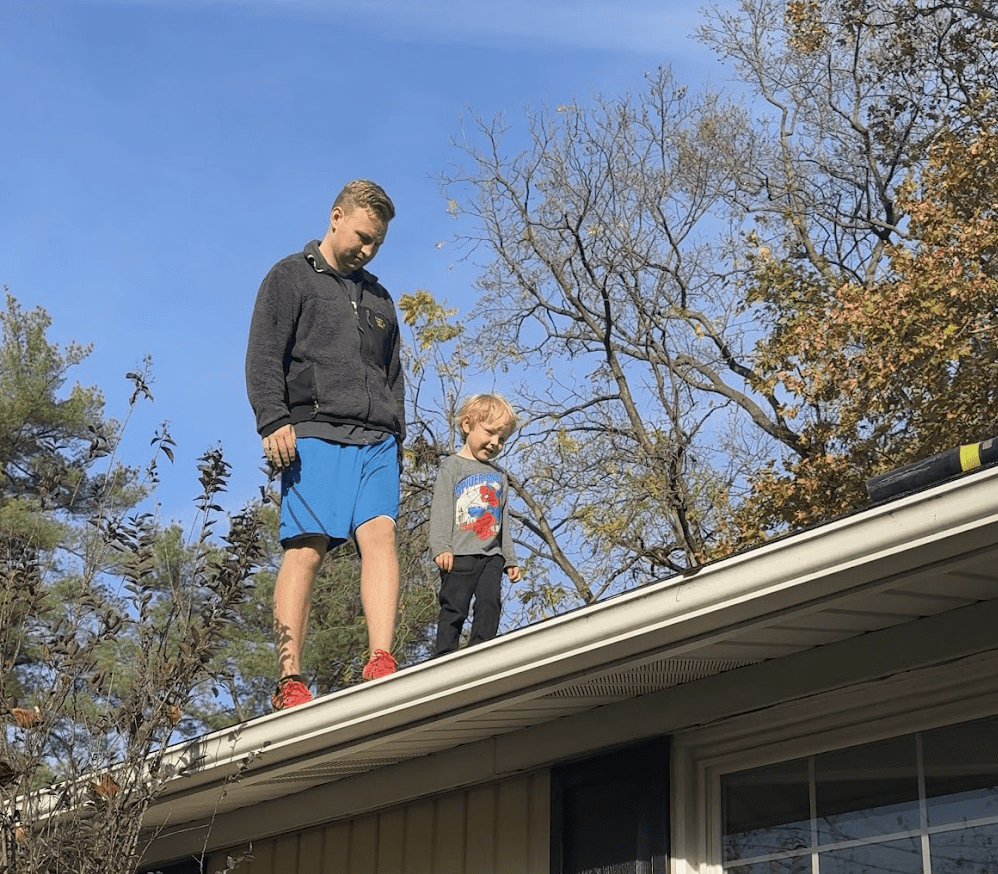What My Four-Year-Old Knows About Healing That Most Adults Don’t
Episode 91: Spotify | Apple Podcasts | YouTube
View transcript on Buzzsprout
This episode begins with a four-year-old on a roof—and ends with a profound lesson about healing that many adults are still learning. Amanda shares a personal parenting moment turned life metaphor, using her son’s cautious curiosity and self-awareness as a lens to examine emotional regulation, support, and the gaps many of us face due to our upbringing.
What We Cover in This Episode
- Why regulation is a skill that must be practiced, not assumed
- The connection between our adult struggles and childhood emotional modeling
- How slowness and support can accelerate healing
- Three core lessons from one tiny but mighty moment of parenting
Healing Lessons From a Four-Year-Old: Emotional Growth on the Roof
Lesson 1: Practice Is Part of the Process
When Amanda’s son said, “I want to practice so that when I’m a grown up, I can do it on my own,” it wasn’t just cute—it was a profound reminder of what we all need. Healing requires repetition. Regulation requires repetition, it is a learned skill, and most adults struggling today weren’t given the chance to learn those skills in childhood. Whether your caregivers lacked emotional awareness or your environment didn’t allow for practice, your nervous system might not have gotten the reps it needed.
Lesson 2: Go Slower When You’re Less Supported
Quote #2 from her son was, “I’m just going to walk super slow since I’m not holding your hand.” That statement is a masterclass in self-awareness. It’s also something many adults skip. Our culture glorifies going fast—but healing, especially from trauma, asks us to slow down. If you’re walking your healing journey without much external support, the most protective and effective thing you can do is adjust your pace.
Lesson 3: Support Builds Safety
While Amanda’s son took cautious steps on the roof, his dad was right there. Not just watching—but guiding, correcting, and ready to grab a hand if necessary. That is what co-regulation and support look like. Many of us didn’t grow up with that kind of backup. Some of us learned that help wasn’t safe or reliable. But healing happens faster and more gently when we aren’t doing it alone. Safe relationships provide the structure we might not have had, or even if we did, we still need.
This Isn’t Just a Story—It’s a Framework for Healing
Each part of Amanda’s anecdote illustrates a powerful truth about trauma recovery. You’re not expected to have it all figured out. You’re allowed to practice. To go slow. To ask for help. That’s not regression—that’s regulation. And if you’re rebuilding your emotional foundation from scratch, it’s not too late.
Three Tangible Takeaways
- Practice is part of healing. If you weren’t taught regulation as a kid, of course it’s hard now. That doesn’t mean you’re bad at it. It means you’re building the skill.
- Go slow—on purpose. Slower is often safer, especially in trauma healing. Your nervous system sets the pace.
- Support matters. Healing wasn’t meant to be done alone. Whether it’s friends, therapists, or coaching—having someone alongside you changes everything.
Looking for more personalized support?
- Book a FREE discovery call for RESTORE, our 1:1 anxiety & depression coaching program (HSA/FSA eligible & includes comprehensive bloodwork)
- Join me inside the Regulated Living Membership, a mental health membership and nervous system healing space (sliding scale pricing available)
- Join my Release Class – Monthly guided nervous system regulation class
- Order my book, Healing Through the Vagus Nerve today!
- Download free resources here
*Want me to talk about something specific on the podcast? Let me know HERE.
Disclaimer: This article is for informational purposes only and is not a substitute for professional medical advice, diagnosis, or treatment. Always seek the advice of your physician or qualified mental health provider with any questions you may have regarding a medical condition.

Leave a Reply Cancel reply
A mental health newsletter that feels like a deep breath: simple, grounding, and here to remind you that healing is possible.
The Weekly Rewire
Navigate
Regulated Living provides neuroscience-backed mental health coaching to help you regulate your nervous system and reclaim your life from anxiety and depression.
Heal
Learn
Paragraph